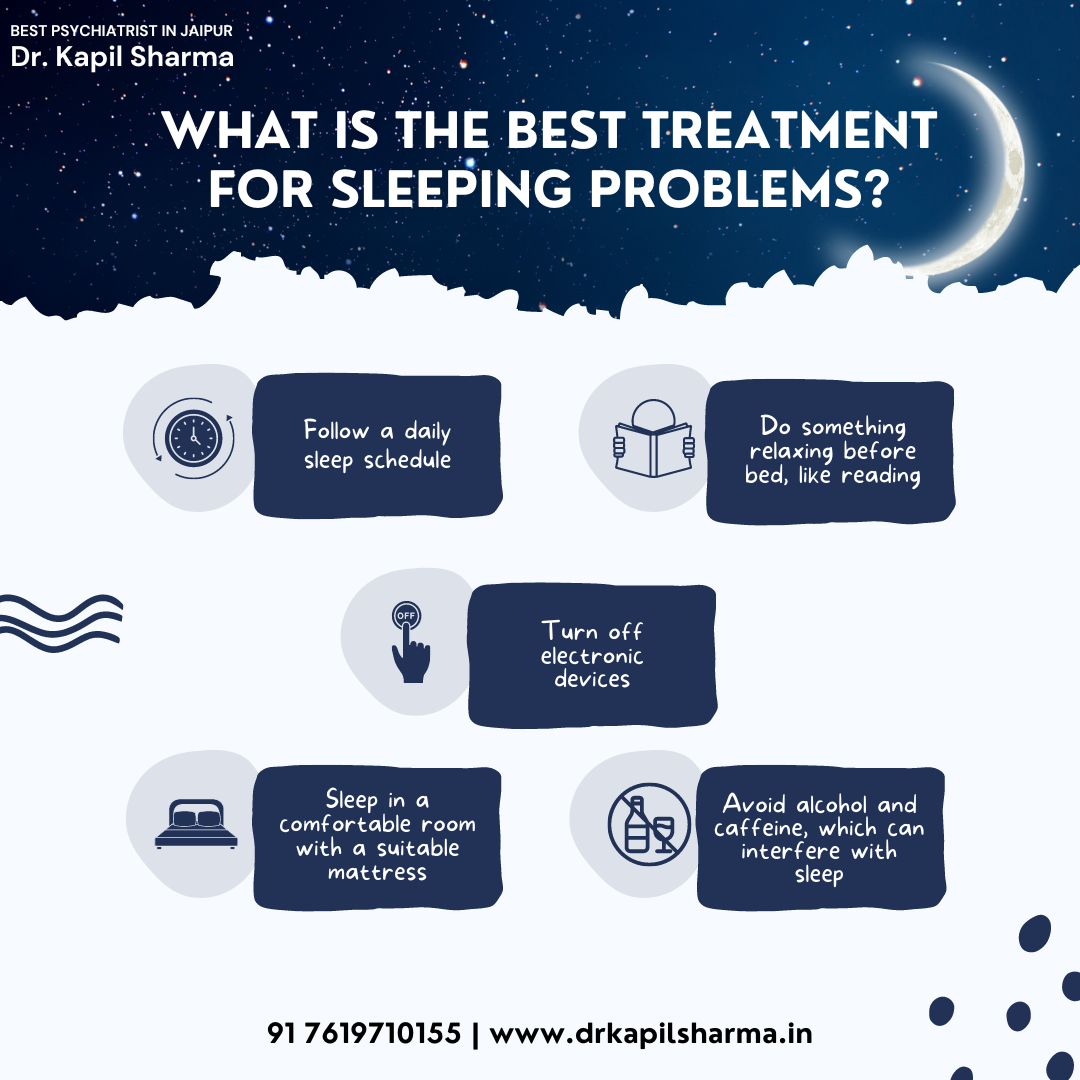
What Is The Best Treatment For Sleeping Problems?
Sleeping problems, often referred to as insomnia or sleep disorders, can significantly impact one’s quality of life and overall health. From difficulty falling asleep to staying asleep or experiencing unrestful sleep, these issues can manifest in various forms, affecting millions of individuals worldwide. While occasional sleep disturbances are common, persistent sleeping problems warrant attention and intervention. In this article, we delve into the best treatments for sleeping problems, considering both conventional and alternative approaches to help individuals achieve restorative sleep and improve their well-being, with insights from the Best Psychiatrist Doctor in Jaipur.
Understanding Sleeping Problems: Before delving into treatments, it’s crucial to understand the underlying causes of sleeping problems. Factors such as stress, anxiety, depression, poor sleep habits, medical conditions, medications, and lifestyle choices can contribute to disrupted sleep patterns. Identifying the root cause is essential for developing an effective treatment plan tailored to individual needs.
Conventional Treatments:
- Cognitive Behavioral Therapy for Insomnia (CBT-I): CBT-I is a widely recommended treatment for insomnia, focusing on changing negative thought patterns and behaviors associated with sleep. It helps individuals develop healthy sleep habits and relaxation techniques, improving sleep quality and duration over time.
- Medications: In cases where behavioral interventions alone are insufficient, physicians may prescribe medications to alleviate sleeping problems temporarily. These may include sedatives, hypnotics, or antidepressants. However, long-term reliance on medication should be avoided due to potential dependency and side effects.
- Sleep Hygiene Practices: Simple lifestyle adjustments can significantly improve sleep quality. Recommendations include maintaining a consistent sleep schedule, creating a relaxing bedtime routine, optimizing sleep environment (e.g., comfortable mattress, dark room), avoiding stimulants (e.g., caffeine, electronics) before bedtime, and incorporating regular physical activity into daily routines.
Alternative Treatments:
- Relaxation Techniques: Practices such as meditation, deep breathing exercises, progressive muscle relaxation, and guided imagery can promote relaxation and reduce stress, facilitating better sleep.
- Herbal Supplements: Certain herbal supplements, such as valerian root, chamomile, passionflower, and melatonin, are popular for their potential sleep-promoting properties. However, their efficacy varies, and it’s essential to consult with a healthcare professional before using them, especially when combined with other medications.
- Acupuncture: Acupuncture, an ancient Chinese therapy involving the insertion of thin needles into specific points on the body, has shown promising results in improving sleep quality and reducing insomnia symptoms. It is believed to rebalance the body’s energy flow, promoting relaxation and restful sleep.
- Light Therapy: Light therapy, particularly useful for individuals with circadian rhythm disorders or seasonal affective disorder (SAD), involves exposure to bright light sources to regulate sleep-wake cycles and mood. This treatment can help reset the body’s internal clock and improve overall sleep patterns.
Conclusion: Addressing sleeping problems requires a multifaceted approach tailored to individual needs and preferences. While conventional treatments like CBT-I and medication remain cornerstone interventions, alternative therapies such as relaxation techniques, herbal supplements, acupuncture, and light therapy offer additional options for those seeking holistic approaches to better sleep. It’s essential to work closely with healthcare professionals, including the Best Psychiatrist in Jaipur, to develop a comprehensive treatment plan that addresses underlying causes and promotes sustainable improvements in sleep quality and overall well-being. With the right combination of strategies and support, achieving restorative sleep is within reach for many individuals struggling with sleeping problems.

